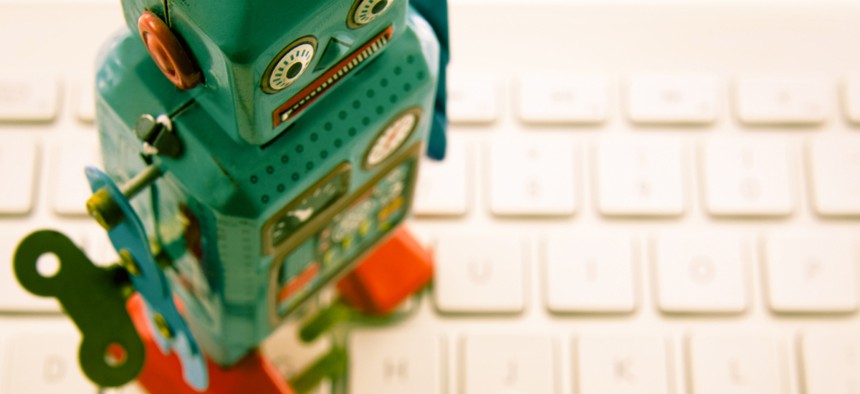Americans Want Big Government Help When Robots and Artificial Intelligence Take Their Jobs

charles taylor/Shutterstock.com
Economic fears run deep.
The Pew Research Center wanted to gauge Americans’ sentiments on robots and computers getting good enough to assume human tasks. The unequivocal reaction? Thanks, but we’ll pass.
Respondents in a national survey of 4,135 adults this May reported feeling far more worried than enthused about robots and computers performing jobs like driving cars, screening employees or taking care of the elderly. Doubters outnumbered optimists 72% to 33%.
On specific tasks, the survey found the most opposition (67%) when it comes to jobs demanding judgement, such as evaluating job candidates. The sentiment was more evenly split on driverless cars and elder care, despite evidence showing computers are less error-prone than humans when it comes to driving cars (and planes, trains and other vehicles). Still, most (87%) favored requiring a human in the driver’s seat of autonomous cars, to take control during an emergency.
Most of the unease seems to stem from a “lack of trust in technological decision-making,” says Pew. Respondents cited machines’ lack of “creativity and insight of humans” to justify keeping humans more in control of any automation.
Of course, the economic fears run deep: 76% said economic inequality will become “much worse” once robots and computers can match humans at most tasks, and only 25% expected many new, better-paying jobs to arise as a result (64% agreed that people would struggle to find meaningful ways to spend their time after automation spreads further).
That seems overly bleak given the history of technology, which hasgenerally materially enriched society, despite inflicting painful and traumatic transitions on specific groups, usually those performing routine, predictable tasks.
Pew also found strong support for restricting the spread of automation, and for more generous social programs to help the displaced (although more strongly among Democrats than Republicans). The vast majority (85%) said policies limiting the scope of jobs machines would be justified, along with additional income and work programs.
The young and those excited to try out new automated technologies (less than 45% in most cases) were more likely to express optimism about the future, as were those with at least some college education. Most respondents who were fans of technology generally reported that it had increased career opportunities and made work less demanding.
Most Americans (77%) deemed it realistic that robots and computers would take over many jobs now done only by humans. And most were optimistic about their own prospects: Only 30% thought their own jobs or careers could be threatened in their lifetimes.





